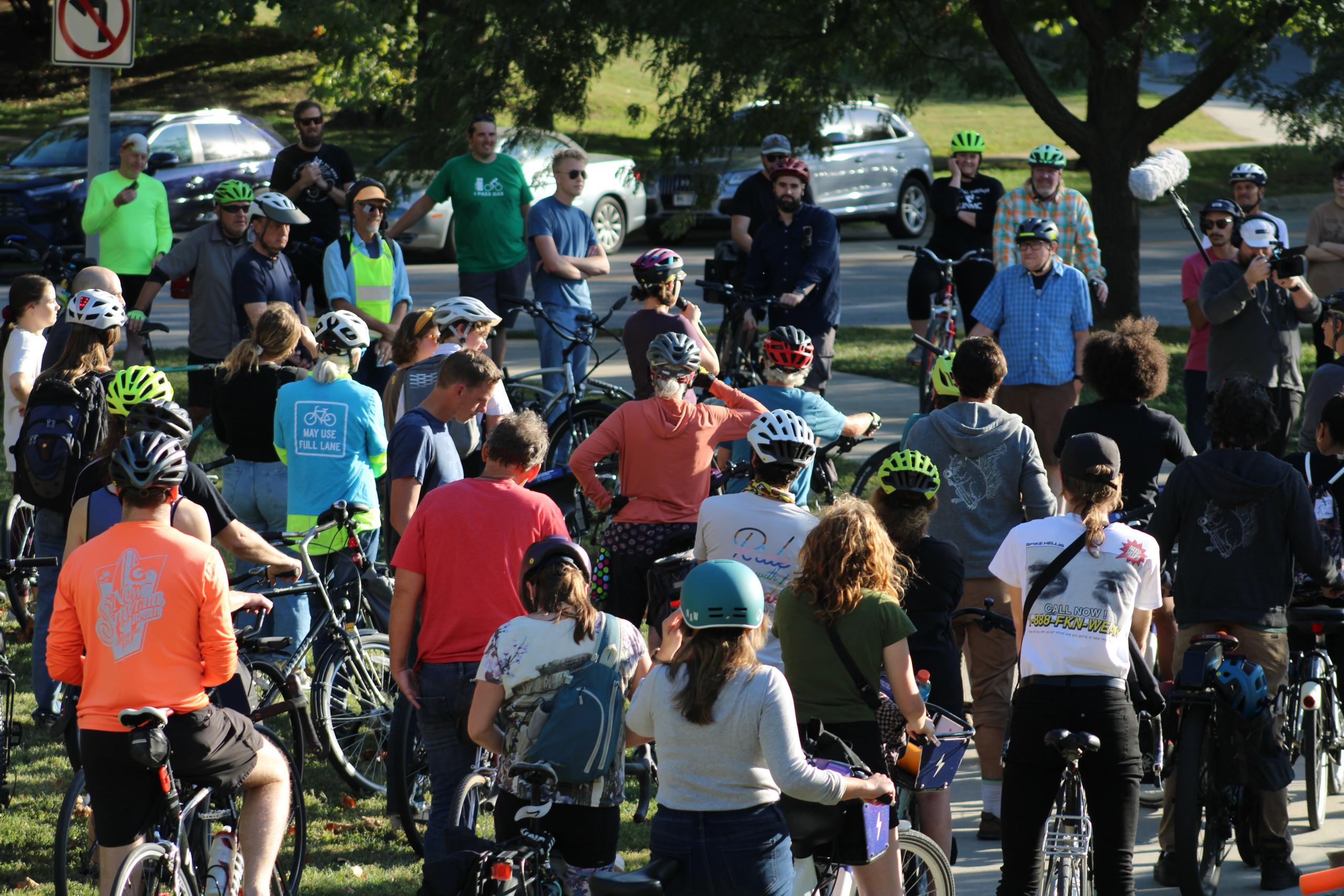Weird times, right? But weirdness has never stopped Mode Shift in our mission. We will continue to conduct our regular monthly gatherings, but for the immediate future, we will be meeting virtually. For this month’s coffee chat, we are gathering via Google Hangouts. Let’s give it a try while we socially distance. You can join us using this link. Friday, March 20th at 8 a.m. You will have to provide your own coffee. This month we are talking about accessibility, specifically for those in our community who use mobility devices. Nancy Berg, a local accessibility activis, put together a panel. We’ve asked them five questions.

Nancy Berg is an Omaha native that was paralyzed when she was 16. During her free time, she is a content creator for an Instagram account called @accessible402. Her account features accessible and adaptive activities for wheelchair users in Omaha, Lincoln and surrounding areas.

Logan Finn has Spina Bifida and has used a wheelchair for the last 30 years. Five years ago he became a double amputee and moved to Omaha. He relies on public transportation like MOBY to transport him from place to place.

Jerad Covey has Spinal Muscular Atrophy and uses a powerchair. He is a transportation/disability advocate that would like to see the creation of an on-demand, door-to-door transportation option for powerchair and scooter users in the greater Omaha metro area.
What are the transportation challenges facing people who use mobility devices?
Jerad: I live outside of the limited MOBY paratransit service area, so my biggest challenge is finding reliable powerchair accommodating vans to transport me from place to place. With my disability, it is outrageously expensive for me to purchase the necessary vehicle modifications in order to drive independently. Any meaningful state funding assistance is withheld by cost containment criteria.
Nancy: For those that drive their own vehicle, the biggest challenge can be finding an affordable vehicle that is easy to transfer in and out of. Also finding a company that offers affordable vehicle adaptations so the vehicle can be driven can be hard. My vehicle has been modified with hand controls, so that I am able to control the break and gas with my hands.
Logan: Besides the daily obstacle of finding reliable transportation, my biggest challenge is maneuvering my wheelchair. Once I am dropped off at my destination, there can be issues like uneven sidewalks, missing curb cuts, gravel when crossing the street that can make wheeling a challenge.
What are the greatest accessibility issues in Omaha?
Logan: MOBY has a fixed schedule that you have to abide by in order to get a ride, and all rides must be within 3/4 of a mile of the fixed Metro Bus route. There are places that I am unable to go because the end location is out of range. For example, I would love to start my own adaptive clothing line. There are classes that I could take at Metropolitan Community College in Elkhorn, but there is not an affordable way for me to be transported there each week.
Jerad: Powerchairs typically weigh 300 lbs therefore a modified vehicle with a ramp is required. I am unaware of any service in Omaha that provides accessible transportation for people like me beyond 6 pm. Even during daytime business hours, users complain of unreliable and unresponsive transportation to and from medical related appointments, not to mention errands and entertainment.
Nancy: My biggest issue in regards to accessibility is that there is not enough accessible parking. There are many trendy neighborhoods in Omaha that have fun restaurants, bars and shopping, but the lack of parking makes it hard to go to these places independently.
Common parking issues:
- Not enough accessible parking spots
- Accessible parking spots with no access aisles making it impossible to get in/out of the vehicle with a wheelchair
- People misusing accessible parking spaces by parking in them without a valid tag
- People parking their vehicle on the access aisle or access ramp making it difficult to get to their vehicle
- Van accessible spots have cars instead of vans parked in them. There are some vans that rely in these spots because they have a side loading ramp.
- Snow is also a huge problem. I have seen snow plowed into accessible spots. Access aisles are commonly not shoveled making it difficult to get to the vehicle. Also, snow and slush often block curb cuts to the sidewalk.
What is a misconception you’d like to correct about people who use mobility devices like a wheelchair or scooter?
Jerad: A misconception is that people with mobility issues wouldn’t use and enjoy safe, reliable, on-demand transportation. Because service has been so disappointing in the past, most users quit trying to rely on a broken system and therefore the statistics don’t accurately represent the need in our community.
Nancy: A misconception is that people with disabilities can easily get into businesses without an issue. It is 2020, so all places should be accessible… right? I feel that accessibility and accommodations for people with mobility devices is often an afterthought or done at the bare minimum to make the business ADA compliant. People with disabilities love to get out of their homes and interact with others. Part of the reason I created my Instagram account @accessible402 was to show people that there are adaptive and accessible activities in our community, and it gives other wheelchair users the confidence and courage to go out and try these activities for themselves.
Logan: Many people think that it is easy for wheelchair users to get around because they are on wheels. Often I have issues getting to places safely. As I mentioned before, uneven and cracked sidewalks, missing curb cuts, etc make transporting myself difficult at times.
When we talk about accessibility, what kind of language should we use, and what should we avoid?
Jerad: I don’t let language become a barrier. My concerns are with the level of training and professionalism by the service providers and their compassion for community members who seek to travel with individual mobility requirements.
Logan: It is my personal opinion that language doesn’t matter as much. It is the tone or the way the words are said that hurt the most. There are some disabled people who are very picky and get very upset if you do not use the correct words, but they will not tell you what those words are and will just tell you the language to not use.
Nancy: People can be very sensitive to language associated with disability. There are many guides on the Internet if you are looking for respectful disability language.
If you could magically change one thing in Omaha regarding transportation what would it be?
Jerad: I would like to see medical facilities, businesses that value diversity, and individuals interested in progressing public transportation infrastructure – work together to create a public/private partnership that serves the mobility challenged in our community.
Logan: I wish that Moby and the Metro Transit were not run the same way. I would love for Moby to go to more locations within Omaha and the surrounding areas, and I would love to be able to use Moby at night. I often take Moby to get to a place like a concert before service is done for that day. Then, I will use Uber to get back home. Since I depend on public transportation daily, Moby is affordable for me to use.
Nancy: I would love public transportation to be easily accessible. When I was in Las Vegas a few summers ago, it was so easy to find a taxi that I could wheel into and not have to get out of my chair. This type of transportation was available at all hours, and it was so convenient. I would love to have this type of spontaneous transportation in Omaha.

